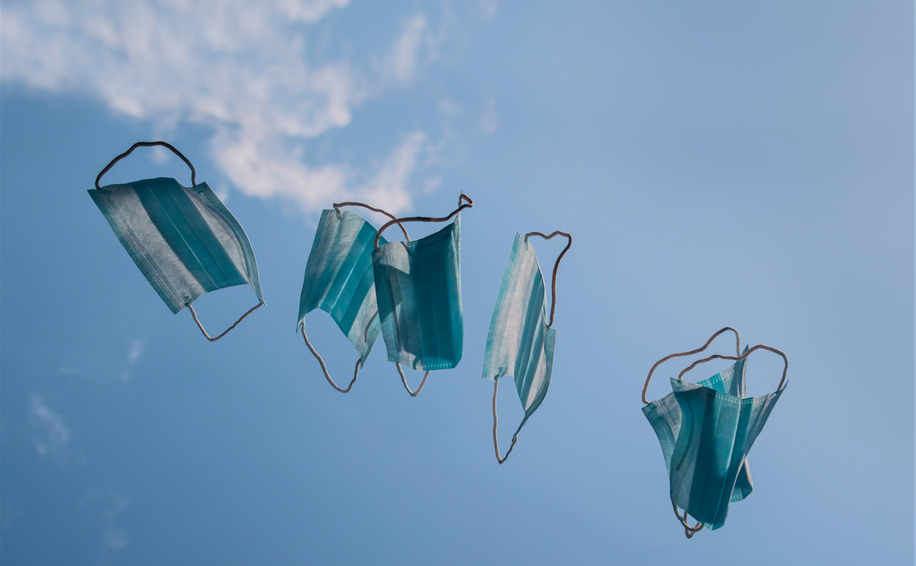“We are back to normal,” proclaimed Tribeca Festival cofounder Jane Rosenthal on June 8.
The Variety story featured an interview with Rosenthal and cofounding partner Robert De Niro, expounding on the joys of in-person festivals. De Niro declared “The festival is social. … It’s like a cultural convention, people have to get together.”

A cascade of words advocating a swift return to the longed-for so-called “before times” prior to the disruptions of the COVID pandemic unfolds daily from the entertainment industry, higher education, gyms, restaurants, and bars.
I’ve heard various college administrators insist that students want “normal,” and perhaps they do, but it is also the thinnest cover for the hidden political economies of in-person classes and filled dorms that keep higher education in business.
Still — normal? I have not heard this word uttered by any of my students, many of whom struggle with pandemic-fueled disengagement and various existential upendings of their assumptions and dreams. Indeed, some, energized by the new opportunities of the emerging hybrid world where digital and embodied comingle, feel just the opposite.

The concept of normality, favored by so many executives and administrators, is like a mantra attempting to stave off the grieving for the end of our lives as we lived them in 2019. It is chanted repeatedly to reassure us of stability and continuity when COVID slashed through both.
Normal, the new normal, back to normal, return to normal, post-pandemic, post-COVID, mask-free.
These words derived from the concept of normal deny the epic changes the pandemic galvanized and the agency of people who had to endure the disruption and invent new ways of living.
These words also white out 2 1/2 years of COVID history, functioning as a cultural production of amnesia and oblivion. They default to a Global North, male, racialized White domain, where “normal” originates in the developed world but has difficulty crossing into the Global South, where COVID scenarios differ dramatically.
And now, even a new feature-length narrative film by British director Michael Jaffe entitled “The New Normal” (2022) is on offer. It is a story set in London, New York, and Porto Alegre, Brazil, following three characters through changes unleashed by the pandemic.
Normal is a Conservative Fantasy
Normal has never sat easy with activists from any sector in any parts of the globe. It is a word that suggests ossification, the status quo, the deliberate obscuring of power, and the reification of dominant oppressive regimes of gender, race, ethnicity, nationality, ability, and more.
Normal tucks into the word normalizes, which hides difference and struggle, a flattening out process much like ironing a wrinkled blouse. In the case of COVID, the pandemic is not the same across the globe.
For example, I am leaving soon to attend the Orphans Film Symposium “Archive/Counter Archive” for archivists, scholars, and media makers in Montreal, just five hours away from Ithaca, New York, where I live. It’s been a long time since I attended one of my favorite film world events, and three years since I left the U.S.

To cross the border via the bridge across the St. Lawrence Seaway and the Thousand Islands, I am required to download the ArriveCAN app on my iPhone, load up my vaccination card and passport, enter the address of my hotel for contact tracing, and save the QR code sent to me to show at the Landsdowne, Ontario border crossing.
And, at the conference held at Concordia University, we are required to wear masks. At receptions with food and drink, we need to be seated while consuming. The university offers “free mask dispensaries” in case we forget our more protective KN95 masks.
Farther away lies East and Southeast Asia, where I have lived, worked, and traveled on and off for the last 20 years. The film festival I direct in Ithaca, New York, has many collaborations with Hong Kong and China. Right now, the U.S. State Department has issued a travel advisory for China, advising that U.S. citizens not travel to Hong Kong, Shanghai, and other areas in that part of the world.
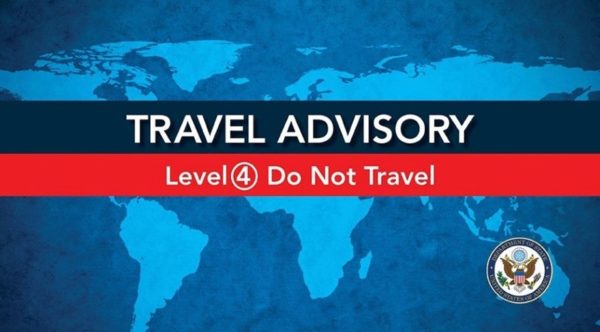
Disability rights activists also critique the word normal. For someone whose extended family includes a severely hearing-impaired person, those with cognitive impairment and dementia, some with diagnosed psychiatric issues, and neurodiverse people, the word normal denies, marginalizes, and hides these differences.
Normal is a conservative fantasy to resurrect a vision of the U.S. that no longer exists and likely never has.
All Film Festivals Are Not the Same
COVID changed even the Tribeca Festival, which has dropped film from its title to take into account gaming, VR, and podcasts. For now, it will continue pandemic outdoor screenings and will still offer “Tribeca at Home” streaming initiatives, advertised with the cut line “Enjoy the festival from the comfort of your own home,” as a way to expand the brand and its reach beyond New York City.
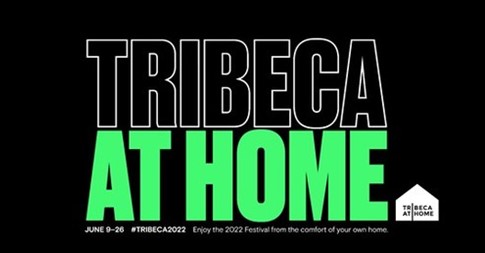
Festivals like Berlin, Cannes, and Tribeca with major corporate and national state funding have the luxury of returning to in-person operations thanks to AT&T, City National Bank, Nike, Chanel, and Bloomsbury Philanthropy, which serve as “signature partners.” The large financial cushion of these festivals enables them to pretend that normal is a place that can actually be returned to or conjured up. To no small extent, this is because they operate as part of the international media markets of acquisitions and transnational corporate underwriters.
Smaller curated theme festivals, such as the Finger Lakes Environmental Film Festival, which I direct (full disclosure: with collaboration from the Park Center for Independent Media, publisher of The Edge), operate in a different sector entirely, many galaxies away from corporate media and the big Class A festivals with their COVID protocols and public health teams.
Ignoring corporate media and market forces, small festivals offer community and debates, bringing the local to the global and the global to the local, almost entirely away from business concerns. They are small in funds and sponsors, but big on collaborations, ideas, and making space for all those books, films, music, journalism, and art that fall outside of mainstream media.
These smaller festivals have surfed the waves of disruption through virtual screenings and Zoom sessions, marshalling the technological affordances of new platforms to enlarge their ability to produce international exchanges over ideas and to expand accessibility of hard-to-find films and hard-to-access speakers and debates.

Still, lacking the corporate resources of festivals like Tribeca and Cannes, smaller regional and themed festivals need not ask about a return to normal, whatever that might be in the current ambiguous COVID landscape.
Instead, they are examining how to enable their missions to create public spheres for media that transnational capitalism suppresses. They are debating what percentage of the festival should be online and what percentage should be embodied.

For example, in Ithaca, New York, our local nonprofit cinema festival partner, Cinemapolis, limited ticket sales to 50% capacity in March and April, in no small part because the audience for art cinema skews older and has ongoing health concerns.
Ambiguity Everywhere
It’s unbelievably hard to live in ambiguity.
A recent article published by the esteemed Cleveland Clinic entitled “How to Ease Back into Life After Two Years of the COVID-19 Pandemic” points out that people are “trying to find ‘normal’ again” as the pandemic crawls into its third year. It warns that a hasty reentry into the world might produce overstimulation. The article offers individual coping strategies such as therapy, deep breathing, and meditation that default to the self rather than to community and public health policy.
In March of this year, The New York Times pointed out that the “virus is far from gone” even as indoor mask mandates were lifted across the country. The article contends the virus “is still killing more than 1,000 people every day across the United States.” And it underscores that changes in masking and social distancing are considerably more threatening for those who are immunocompromised, have disabilities, or have young unvaccinated children.
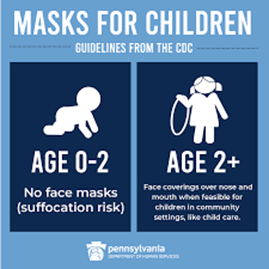
Ambiguity regarding the continuing dangers posed by the pandemic swerves through the international film industry, which is grappling with changing COVID protocols and budget increases for public health, quarantines, and massive testing, with differences abounding between cities or countries.
In January of this year, Screen Daily identified massive changes to the global film industry as a result of COVID: shortened theatrical windows, indie films disappearing as blockbusters take up more exhibition space, festival uncertainties, U.S.-based streaming services challenging theaters, France enacting regulatory moves on those streamers to protect independent film, COVID measures on sets that impact production budgets and mental health, and the opening up of Saudi Arabia to cinema after a 35-year ban.

It’s almost impossible to predict where the commercial and independent media industries will end up from these multiple disruptions and continuing ambiguities. However, we do know that it will not be anything at all like a “return to normal.”
These ambiguities are not confined to media industries. They also infuse daily life.
A meme has circulated on social media, where people post images of their COVID positive home tests with the double lines. One friend posted that he contracted COVID while traveling in France and could not board a plane home until he tested negative.

Now, it seems about every four hours, someone in my friendship and media circles posts, calls, texts, or emails that they tested positive. Some have no symptoms, others have more. When I contracted COVID in early May, the most common question I was asked by friends was how did I get it?
At the Hardware Café in Fair Haven, New York, where my partner and I spend a lot of the summer on Lake Ontario, I spotted hand sanitizer on every table, grouped with the ketchup, Tabasco, and salt and pepper. Driving to the café, we passed summer lake houses bedecked with Trump 2024 flags.
On the way home to Ithaca down Route 90, we stopped at a roadside farmstand for finally-in-season luscious strawberries exploding with intense flavor. Along with the fresh eggs, homemade banana bread, and boxes of hand-picked strawberries, there was a separate counter selling small bottles of home-made hand sanitizer for one dollar.
Upstate New York Constellations of Uncertainty
Just one week ago, I attended my first large party, a backyard gathering to celebrate the retirement of a scientist friend from Cornell University. He is a world-renowned expert on bats.
A long time ago, as we watched our then 12-year-old sons run cross country at some remote place in Ohio, he shared that bats reveal the state of the environment, whether it is healthy or in decline in a particular area.
The Eventbrite invitation to my friend’s retirement asked party goers to bring masks. If the person you were speaking to wore a mask, the invite asked you to mask up out of respect for the uncertainties of the moment. With lights strung across the lush gardens and gorgeous hardscaping, and food from a local caterer, the buffet also featured hand sanitizer and boxes of blue surgical masks.
COVID uncertainties and changes spread like gentle waves on Lake Cayuga through the party. The hostess, a friend who is a physician in Ithaca, said that after COVID, no doctors would work sick anymore. They stay home, protecting their own health and, by extension, the health of their patients.
I saw people with masks hanging from small chains that used to hold reader glasses around their necks. The first sentence of almost every conversation I had was “do you want me to wear a mask?”
I heard many conversations where people reunited with old friends they knew from sitting together in lawn chairs at their kids’ soccer games 20 years earlier, talking about how they survived the pandemic and working from home.
Some retired early. Some quit their jobs to become consultants. Some were fired. Some were downsized. Some changed careers. Many lost family members.
And even more had contracted COVID after they were double vaxxed and double boosted. They compared notes on coughs, fatigue, headaches, chest pains, brain fog, vomiting, diarrhea, home tests versus PCR tests, and how much Tylenol they gulped down for the pain. It seemed that many wanted to ruminate on how long it took to recover in order to feel like themselves again even as we all celebrated our friend’s well-earned retirement.
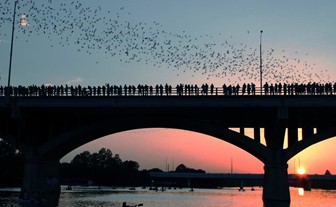
In these small groups of longtime friends reunited, we were like bats living under the bridge in Austin, Texas, who fly out in a large swarm every night at dusk. During COVID, we had been hanging upside down in our caves. Now, in these uncertain and ambiguous times, we could take flight for just a little while.
Normal Is Gone Forever
Right before the moving speeches from former students and the hilarious roasts from old buddies of the scientist, one of my son’s childhood friends chatted with me.
She grew up in a house on the street behind ours. As a high schooler, we had hired her to put rocks in our small side gardens to stave off the phlox and the buttercups. She created these gardens from rocks she scavenged from our larger gardens, placed by hand in artistic designs that accentuated how all the rocks were different.
Later, she had worked as an ICU nurse in New York City during the height of the pandemic in 2020. As we nibbled on French brie, Spanish manchego cheese, and cranberry-infused crackers, I asked her about her experience. She wanted to talk. She knew my mother had COVID and had later died. We connected.
She said Uber and taxi drivers refused to pick up anyone in scrubs, so she stuffed them into her backpack to change at work. She said that when the hospital ran out of Tylenol to ebb the COVID pain in patients, she and other nurses snuck out to the local bodegas to purchase what bottles remained. They then crushed the tabs in secret and stirred the powder into apple sauce, hoping to help their COVID patients secure just a little bit of respite.

Desperately needing a break from the ICU, she now works as a travel nurse in emergency rooms across the country. She contracted COVID at a party with other nurses seven weeks before, as Omicron variants raged through group gatherings.
And then she told me that for her, there will never be any return to normal ever again.
After two years of battling COVID on the front lines in New York City with some of the worst outbreaks and the most deaths, she has been diagnosed as suffering from Post-Traumatic Stress Disorder (PTSD). She was home in Ithaca to connect with high school friends gathered at the retirement party.
As higher education, film festivals, the media industries, and the health care industry churn their way through the perplexing ambiguities and global unevenness of the continuing pandemic, there is something simple yet powerful to be learned from this lovely retirement party in a backyard garden in Ithaca, New York.
Perhaps we need to be more like the bats living in caves who harbor clues on the state of the environment in particular micro-regions that my friend has researched his entire career. At night, the bats leave the caves to fly in swarms, together.
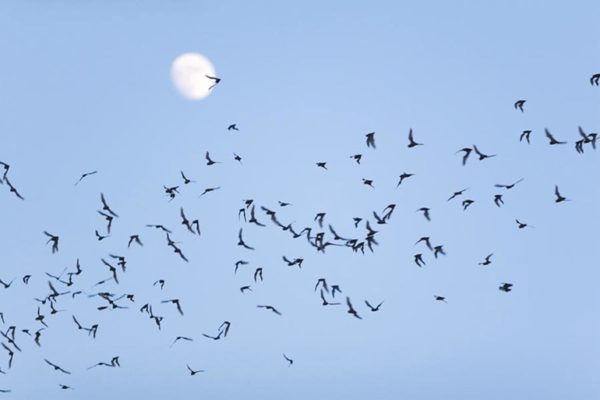
Perhaps both the bats and this Ithaca, New York, retirement gathering show a way forward: how to live with the pandemic in community, how to steer through all the ensuing layered ambiguities with openness and care for others, how to listen to all the stories of illness and death and sadness and happiness and triumph, and how to never, ever, use the word normal again.
Patricia R. Zimmermann is the Charles A. Dana Professor of Screen Studies and Director of the Finger Lakes Environmental Film Festival at Ithaca College in Ithaca New York. The author or editor of ten books, her most recent are “Documentary Across Platforms: Reverse Engineering Media, Place, and Politics” (Indiana 2019) and “Flash Flaherty: Tales from a Film Seminar” (Indiana, 2021).
Header image by Aboodi Vesakaran / Unsplash.

